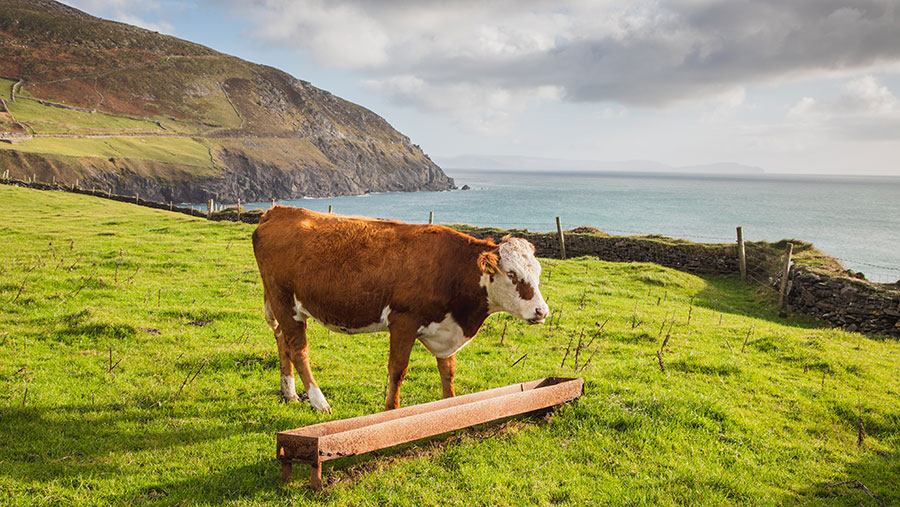Climate change bill could ‘wipe out’ NI livestock farms
 © Fabiano/Adobe Stock
© Fabiano/Adobe Stock An independent report is forecasting an 86% cut in cattle and sheep numbers and 13,000 on-farm job losses in Northern Ireland if the country moves forward with legislation to achieve net-zero carbon emissions by 2045.
The economic impact assessment study by accountancy firm KPMG paints a bleak picture for NI agriculture if Green Party politician Claire Bailey’s private member’s bill on climate change is successful.
See also: NI Assembly climate change bill would hit farmers hard
KPMG’s modelling calculates that achieving the 2045 target, which goes further than the emissions reductions advocated by the UK’s Climate Change Committee and is five years sooner than a UK government target, would wipe out traditional grass-based family farms.
Milk production would be cut to 1946 levels, dairying would cease on 86% of farms and the dairy sector would be reduced to a “cottage industry’’.
Hard hit
The report predicts beef, sheep and dairy as the sectors hardest hit, with 1.12 million fewer beef cattle,1.71 million fewer sheep and 270,000 fewer milking cows.
The effect is likely to be felt most acutely in marginal areas, because livestock farming here is less able to achieve reduction targets through production efficiencies, improved animal health and reduced slaughter age, the report says.
For pig and poultry farms, KPMG believes the effect would be less severe.
The economic shock of the bill’s 2045 emissions target would be felt across the province as output from agriculture would contract by £11bn between 2021-2045, the report predicts, with repercussions for food processors, transport and retail.
Assessment
The report was commissioned by a number of farming organisations because supporters of the proposed climate bill had not produced their own economic impact assessment or rural needs assessment.
One of these, the Ulster Farmers’ Union (UFU), said the findings point to a “ruination” of the agriculture industry, with no guarantee that emissions would reduce.
UFU president Victor Chestnutt is appealing to members of the legislative assembly to read the report “from cover to cover”.
With the private members bill making its way through the legislative process, agriculture minister Edwin Poots tabled his own Climate Change Bill in July, including a more lenient 2050 greenhouse gas emissions reduction target.
This, he said, balanced the need to produce food and feed people with the need to protect the planet.
Both bills are now competing for support from politicians.
